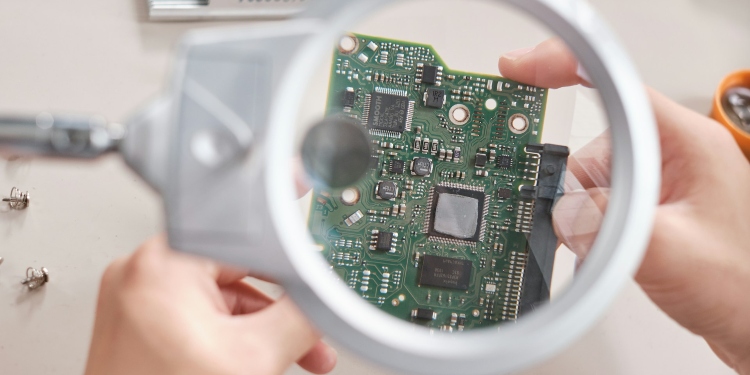As industries from aerospace to green energy ramp up innovation, the demand for skilled electronics professionals has surged, yet the workforce has not kept pace. Retraining offers a compelling solution, particularly in the specialised domain of soldering and printed circuit board (PCB) design.
With legacy workers retiring, supply chains returning to the UK, and digital devices embedded into nearly every sector, retraining in electronics is no longer niche; it is a high-value investment in career longevity and practical expertise.
In 2025, with emerging technologies depending on faultless circuit assembly and rigorous manufacturing standards, those with certified electronics skills are finding their opportunities growing and their value recognised, especially when training with an experienced electronics training provider offering accredited, industry-led instruction.
The Skills Gap in Electronics Manufacturing: A Hidden Opportunity
The electronics manufacturing sector is facing a widening skills gap. According to a 2024 report by the UK Electronics Skills Foundation (UKESF), over 60 percent of employers in the industry reported difficulty filling specialist technical roles, particularly in hands-on disciplines such as soldering and PCB rework. As technology becomes more miniaturised and intricate, the demand for precision manufacturing and rework capabilities continues to rise. Yet, many academic routes still prioritise theoretical learning over practical skill-building, which results in a shortage of industry-ready technicians. This imbalance between workforce output and actual demand presents a valuable opportunity for those seeking to retrain.
For individuals willing to acquire or formalise their skills through certified courses, this shortage represents a strategic advantage. Employers across sectors, including telecommunications, medical devices, aerospace and automotive, are actively seeking candidates with demonstrable practical competencies. The ability to carry out fine-pitch soldering, inspect joints to IPC-A-610 standards, or perform BGA rework with consistency and precision cannot be substituted by automation or generalist training. Retraining into this specialised field is not simply a short-term career switch. It is a logical and financially sound move into a critical area of the UK’s high-technology economy.
Why Soldering Skills Are More In-Demand Than Ever
In an era defined by miniaturisation, high-frequency circuitry, and densely populated boards, manual soldering skills have become more critical than ever before. Although automation plays a major role in mass production, it does not replace the need for skilled technicians capable of precision soldering and component rework, particularly during prototyping, repair, or small-scale manufacturing. Sectors such as aerospace, defence, and medical electronics depend on faultless workmanship where reliability is non-negotiable. In these environments, the human hand, trained to the highest standards, remains an essential part of the manufacturing chain.
Furthermore, international quality frameworks such as IPC J-STD-001 and IPC-A-610 place strict demands on workmanship, requiring practitioners to meet rigorous inspection and execution criteria. Certified professionals who understand these standards are highly valued, not only for their technical ability but also for their capacity to ensure compliance and reduce failure rates. As products become more complex and safety-critical, employers are prioritising individuals with advanced soldering qualifications who can uphold reliability at component level. For those retraining, this represents a direct pathway into work that is both technically challenging and materially rewarding.
Retraining Pathways: From Novice to Industry-Ready
Retraining in electronics has become more accessible through structured, short-form programmes that focus on practical skills. Soldering training often begins with core competencies such as component identification, thermal profiling, and ESD protection, followed by supervised hands-on practice. Advanced modules may include BGA rework, surface mount techniques, and conformal coating, enabling progression into more specialised roles.
For those interested in design, PCB courses introduce tools like Altium Designer, KiCad, and OrCAD, alongside principles such as impedance control and manufacturability. Programmes that blend lab-based instruction with applied assessments provide a direct route into the workforce. With clearly defined training pathways, retraining is no longer experimental, but a reliable entry into a high-demand profession.
The Financial Case for Electronics Retraining
Retraining in electronics offers strong financial benefits. Newly qualified soldering technicians typically earn between £26,000 and £32,000, with specialist roles in aerospace or defence often exceeding £40,000. IPC-certified professionals with experience in rework or inspection are especially valued in sectors where precision is critical.
Unlike lengthy academic pathways, technical programmes can prepare individuals for employment in a matter of weeks. Employers are increasingly supporting further training and certification, recognising the long-term value of skilled personnel. For those seeking a stable, well-paid, and practical career shift, electronics presents a clear and rewarding option.
Training Standards That Matter: IPC, J-STD, and More
In the electronics industry, adherence to internationally recognised training standards is essential for quality assurance and compliance. The IPC J-STD-001 standard governs soldering requirements for electrical and electronic assemblies, and is widely regarded as the industry benchmark for acceptable workmanship. Likewise, IPC-A-610 sets the criteria for visual acceptance of electronic assemblies, providing technicians with the inspection knowledge necessary to identify flaws, interpret specification limits, and uphold performance reliability. These standards are not simply guidelines but are frequently stipulated in client contracts, product certifications, and regulatory audits. Employers consistently prioritise candidates trained to these specifications because it guarantees repeatable, traceable results in production and rework.
Professionals trained to IPC standards often find themselves eligible for roles in sectors where precision and safety are paramount, including defence, aerospace, and critical medical systems. Certifications such as IPC 7711/7721, which cover rework, modification, and repair of electronic assemblies, are particularly valuable in environments where component replacement must be performed without compromising board integrity. By undertaking instruction through an approved electronics training provider, individuals gain both the technical skill and the formal accreditation required to meet the rigorous demands of today’s high-reliability electronics market. These standards form the foundation of best practice across the industry and serve as a powerful credential in any technician’s portfolio.
Conclusion: Invest in Skills That Build the Future
In an increasingly interconnected world, electronics sits at the heart of every major industry, from autonomous vehicles to satellite systems. Retraining in this field is not simply about acquiring a new skill set, but about entering a sector that is both future-facing and fundamentally essential. With growing demand, strong salary prospects, and a clear pathway to professional certification, individuals who choose to retrain are making a practical and profitable investment in their careers. For those prepared to commit to precision, discipline, and continual learning, the rewards of working in modern electronics are both immediate and enduring.
David Prior
David Prior is the editor of Today News, responsible for the overall editorial strategy. He is an NCTJ-qualified journalist with over 20 years’ experience, and is also editor of the award-winning hyperlocal news title Altrincham Today. His LinkedIn profile is here.













































































